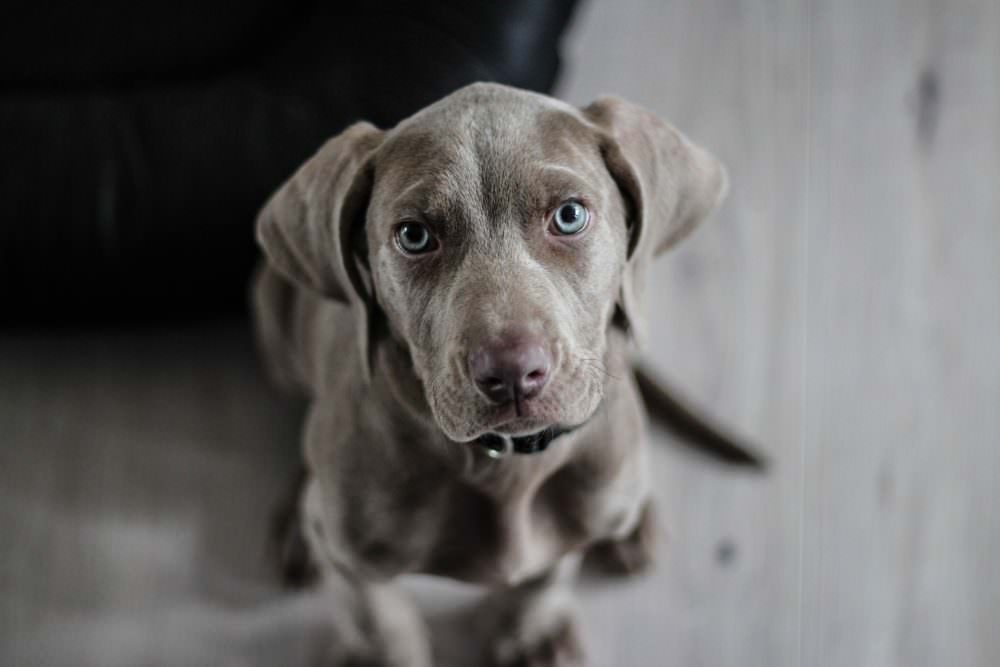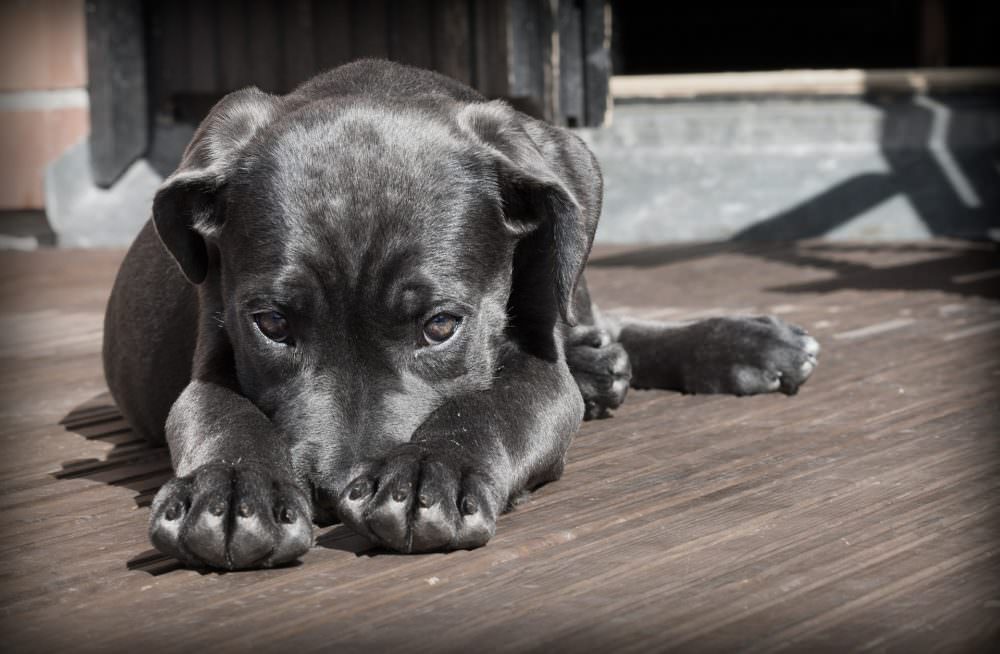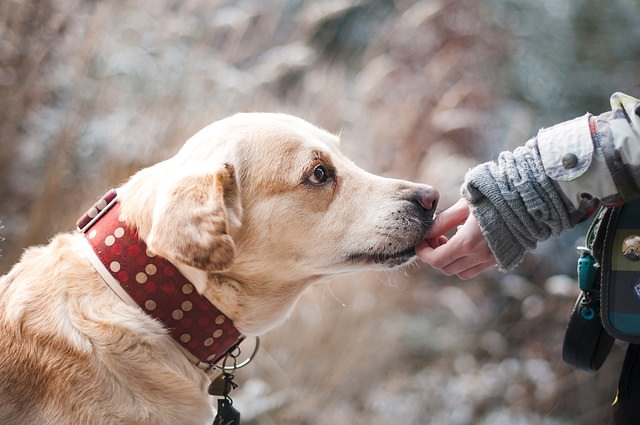Anxiety is one of the single most common behavior problem pup parents enquire about. Why does my dog cry/bark/dig/pace/house soil/destroy property when I leave her home alone? Separation anxiety in dogs can manifest itself in many different ways, from mildly inconvenient behaviors to activities that threaten their very health and safety. Luckily, there are answers to your questions and resources to help your pup through this frightening and frustrating issue!

We sat down with one of our favorite pet experts, Dina Fantegrossi (a vet tech and animal researcher/writer by trade), to help address the top anxiety questions we get from readers. We hope her knowledge can inform and address some of the questions you may have about your pup.
Q: Why is my dog suffering from separation anxiety? I feel so helpless!

A:
Dina: Unfortunately, we do not fully understand why some dogs experience separation anxiety and others do not. Shelter dogs seem to develop this distressing problem more often than those kept by a single family since puppyhood. While there is no proof that genetics play a role, separation anxiety tends to be more prevalent in high energy and people-oriented breeds.
It is normal for loving dog parents to experience feelings of guilt and helplessness when their pups show signs of separation anxiety – we never want to see our furry BFFs suffer – but rather than focusing on “why,” it is far more productive to to channel your efforts toward finding a solution.
Q: What are the most common triggers of this condition?

A:
Dina: While not all dogs with separation anxiety have a specific trigger, there are certain life changes that can spark anxious behaviors. Dogs that have lost a trusted guardian through death or abandonment may understandably become more anxious when separated from their new families. Changes in schedule, moving to a new home, and the sudden absence of a loved family member – like a child going off to college or the loss of a pet – can also result in separation anxiety.
Q: I’m considering getting a second dog to keep my anxious pup company, will this help?

A:
Dina: Some dogs seem to improve dramatically with the companionship of a second dog. For others it makes no difference at all, and in some cases a second dog may make the situation worse. It depends on the temperament of each dog and whether they feed off of each other’s anxiety. Unfortunately there is no way to predict which outcome you will get, so it is best to focus on helping the dog you already have. The decision to add another pet to your family should never be made to fix a problem.
Q: Are there ways I could be contributing to my dog’s separation anxiety?

A:
Dina: This is a sensitive topic. While no one should ever blame themselves for their dog’s separation anxiety, it is possible that your reactions could reinforce the behavior. When we see someone we love in pain, we naturally want to comfort them, but dragging out your departure may only feed your dog’s anxiety. It is also important not to punish an anxious dog for house soiling or destructiveness – remember, it was done out of fear, not “naughtiness.”
Q: My dog looks so sad every time I leave. How do I know if their behavior is normal or if they are experiencing separation anxiety?

A:
Dina: Dogs are social animals and it is perfectly normal for them to seem a little “sad” when you leave the house. The difference between normal glum behavior and separation anxiety is drastic! A sad dog will stare after you for a few moments and then go back to napping or chewing her bone. An anxious dog may pace obsessively; bark and howl for hours; urinate or defecate inside; chew, dig or destroy property; attempt to escape, or even harm herself.
Q: What are some things that I can do as a responsible owner to decrease my dog’s anxiety?

A:
Dina: There are many promising modern treatment options that can provide your dog and you with some relief.
First, consult with your veterinarian to rule out a medical explanation. For example, house soiling could be incontinence or a sign of incomplete potty training.
Destructive behaviors and barking may simply be a sign that your pup is bored or needs more exercise. Try wearing your pooch out with a play session or a long walk before you leave the house. Fill a puzzle toy with treats to relieve boredom.
In mild cases of separation anxiety, counterconditioning – a treatment process that changes an animal’s fearful, anxious reaction to a pleasant, relaxed one – may help significantly. Strategies include providing a favorite toy or treat at your departure time in order to re-train your pup to look forward to that moment. Your vet or trainer can help you with the details!
More severe cases may require gradually getting your dog accustomed to being alone by starting with many short separations that do not produce anxiety. Over many weeks of daily sessions, the separation times are slowly increased in order to provide gradual desensitization. Again, your vet and trainer are great resources to help you through this process.
Some dogs have separation anxiety that is so severe it puts their own safety or the safety of others at risk. They may tear at the walls until their paws bleed or dash from the home when you try to leave. In these cases, a combination of behavioral therapy and medication may be needed. There are several different drugs that can alleviate your dog’s specific symptoms. Work together with your vet and dog behavior specialist to find the right combination of treatments.
 Toledo, United States.
Toledo, United States.